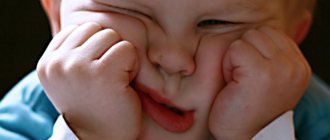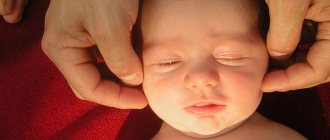Causes of deviant behavior of adolescents and ways to solve this problem
Crime and drug addiction among children are growing rapidly every year. It is obvious that the tendency towards deviations in the behavior of children is associated with social, economic, political and environmental instability in the moral values and ideals of young people, including the lack of proper education. We are faced with aggressive behavior from people around us, unhealthy habits and illegal actions, but what are the true reasons for the formation of such a society? What actually makes a person cause harm and cause destruction both in relation to himself and in relation to society? Are there ways to avoid deviant attitudes in society? Experts in various fields have been trying to find answers to these and many other questions for many years.
Let us outline the main reasons for deviant behavior in adolescents:
- Lack of proper upbringing. Children raised in single-parent families are most susceptible to this problem. Conflictful relationships in the family circle, as well as an antisocial lifestyle, the presence of bad habits, such as, for example, addiction to alcohol, are also a key factor in the formation of deviant behavior in a teenager. The main mistakes in raising children are:
– deprivation of the child’s attention and care from the parents, indifference to the child’s experiences;
– a formal attitude towards fulfilling the responsibilities of raising a child and forming him into a full-fledged personality (often the formality of upbringing is limited to financial investments in the development of a teenager);
– lack of ability of parents to think critically when it comes to their child, refusal to help in raising, regular attempts to justify the deviant behavior of their child;
– strictness and excessive demands, due to which the child develops a feeling of the impossibility of meeting anyone’s expectations, and, accordingly, of his own uselessness;
– coldness and cruelty in family relationships, regular punishments even for minor offenses.
Speaking about behavior deviating from general social norms, one cannot fail to mention the role of educational institutions as one of the key factors influencing the upbringing of a child. Interest in the educational process is the most important aspect of personality development. However, the vast majority of children prone to deviant behavior have great learning difficulties and, as a rule, have conflicting relationships with the team, which further alienates them from society.
- Medical and biological factors
Hereditary factors play a role, such as the inheritance of antisocial character traits and heredity caused by the lifestyle of the parents.
Serious illnesses suffered in early years and traumatic brain injuries, which can lead to the formation of a special personality type, often characterized by mental instability, also have a significant impact on the formation of personality. It is worth noting that in recent years, another significant problem has arisen among young people - “deceleration” - a process inverse to acceleration, that is, a slowdown in the processes of biological maturation of all organs and systems of the body, which in turn also has an extremely negative impact on the social adaptation of adolescents , they become more susceptible to the influence of asocial ideas and views.
- Mental factors
As you know, adolescence is the most important period in the formation of character and personality. Violation of the correct, healthy formation of personality leads to various deviations in behavior.
The most common examples of deviant behavior among adolescents are:
– reaction to stress in the form of aggression, rudeness
– refusal to eat, attempts to run away from home
– isolation, limitation of usual social contacts
Correcting deviant behavior:
Speaking about the most effective influence on deviant teenagers, it is necessary to divide them into groups, each of which requires its own approach:
– Teenagers who have committed a socially dangerous act for the first time.
The most effective help for this group of teenagers may be the inclusion of teenagers in extracurricular sections and interest groups. In addition, citing protagonists from cinema and books as examples will have a positive impact on them. Also, this category of teenagers needs to find friends who suit their temperament and have a beneficial influence on them.
– Teenagers who committed a serious socially dangerous act for the first time, but already had an early tendency to deviant behavior.
They usually show no interest in education. To effectively correct the behavior of adolescents belonging to this group, constant monitoring by elders, assistance in choosing the right role models for the child, and encouragement of positive behavior dynamics are required.
– Teenagers who systematically commit offenses.
They are often participants in informal movements. Effective behavior correction requires serious, constant monitoring covering all areas of life, isolation from companies that have a negative impact on adolescents, encouragement is necessary only if these instructions are fully followed.
– Teenagers who have a persistent antisocial orientation are often themselves leaders of antisocial teenage groups.
It is difficult to get in touch with them, as they are distrustful and even partially hostile towards their elders. Effective correction of behavior requires constant, comprehensive monitoring of both the teenager himself and his environment, a focus on entering the child’s comfort zone to further build trusting relationships.
Thus, it is worth noting that deviant behavior among young people in our time is a very pressing problem that requires, first of all, properly organized prevention and immediate solution.
Prevention of deviant behavior should include monitoring of risk factors. Often the preconditions for deviant behavior are hidden in the family. The family gives the child basic, fundamental values, behavioral stereotypes, and norms. The emotional sphere of the child’s psyche is formed in the family, but defects in home education are very difficult to correct. Currently, the common affairs of parents and children are reduced to a minimum. Deviations noticed in time and correctly provided psychological and medical assistance can prevent deformation of a teenager’s personality.
Also, the child can complain to the teachers. Teachers are determined to maintain order and discipline among students and can provide assistance. Talk to his offenders, call their parents to school and encourage them to carry out educational work with their children. Or bring together the abused child and his abusers and try to understand their relationship.
Recently, more and more attention has been paid to the educational process in educational institutions. Thus, the meaning of the amendments to the Law on Education dated May 21, 2020: - “to strengthen and emphasize the educational component of the domestic educational system,” the president said at a meeting on the situation in the field of education. In the explanatory note to the bill, the head of state noted that in accordance with the amendments to the Constitution of the Russian Federation, “children are the most important priority of state policy, the state creates conditions conducive to the comprehensive spiritual, moral and intellectual development of children.” For this purpose, it is proposed to define education as an activity aimed at personal development, creating conditions for self-determination of students on the basis of cultural, spiritual and moral values, rules and norms of behavior in the interests of the individual, family, society and the state.
Education is also intended to foster a sense of patriotism and citizenship, respect for the memory of the defenders of the Fatherland, for law and order, working people, the older generation, and instill respect for the cultural heritage and traditions of the people of Russia, as well as for nature and the environment.
Concept of deviant behavior
The definition of deviant behavior (deviant behavior) is understood as a system of actions or individual actions that contradict accepted legal or moral norms in society.
From the point of view of a medical approach, deviant behavior can be defined as a violation of the norms of interpersonal interaction caused by mental health disorders and the presence of various forms of neuropsychic pathology.
This also applies to the definition of “deviant behavior of adolescents.” However, with regard to the definition of “deviant behavior of children,” there is a slight exception: this term can be used to describe the behavior of only those children who have reached the age of five. Only at the age of four to five years do the child begin to rapidly develop various mental processes, such as memory, attention, perception and others. But a particularly important feature of the development of children at this age is that they become more conscious and voluntary: volitional qualities develop and children begin to be aware of their actions, unlike younger children. That is why the concept of deviant behavior is not used in relation to children under five years old, since their actions cannot be called conscious and volitional.
Combating deviant behavior and prevention
Whatever the reasons for the deviant behavior of children and adolescents, this should in no case be ignored.
If deviations are associated with mental disorders, then such a child must be shown to a psychiatrist so that the specialist can provide qualified assistance and prescribe a course of treatment.
Crimes committed by mentally healthy teenagers should not go unpunished. The penalty is usually determined by the criminal code or the code of administrative offenses, depending on the severity of the offense and the age of the offender. However, in addition to preventive measures, it is advisable to understand the reasons for such behavior. To do this, you need to contact a psychologist who will conduct a diagnosis with the child and help you figure out why this problem arose. In any case, the manifestation of deviant behavior in a teenager should not be left to chance.
Often, a timely conversation with a psychologist helps to understand the child’s problem and find ways to solve it. This, in turn, will help avoid deviant behavior in the future. Namely: it will help a teenager learn to realize their needs without resorting to committing criminally and administratively punishable acts, and will also reduce the risk of alcohol and drug addiction.
Prevention of deviant behavior is quite simple.
Its main essence lies in the formation of moral habits in children at a fairly early age - stable needs to perform moral actions. Moral habits include rules of communication, culture of behavior, discipline, politeness, attention to others, honesty towards oneself and others, responsibility for one’s actions. Once they are formed, the problem of violating moral and legal norms disappears by itself.
Another very important preventive action is to conduct preventive conversations with children and adolescents regarding various antisocial phenomena. They should include the following aspects:
- an explanation of the danger of asocial phenomena for the life and health of both one’s own and those around them;
- an explanation of the consequences that deviant behavior can lead to and what penalties are provided for offenders.
It is also very important to observe the child’s behavior. Parents need to know what the teenager is interested in, who his friends are, how he spends his free time. But at the same time, do not put pressure on him with overprotection and excessive control and give him the opportunity to choose.
As a rule, in this case the child will have no reason to behave antisocially. If, nevertheless, a teenager begins to show deviations in behavior, parents who are interested in the life of their child can notice this in time and have a conversation with him or turn to a qualified psychologist for help.
Compliance with such fairly simple measures will help to avoid the manifestation of deviant behavior in the child and protect him and those around him.








